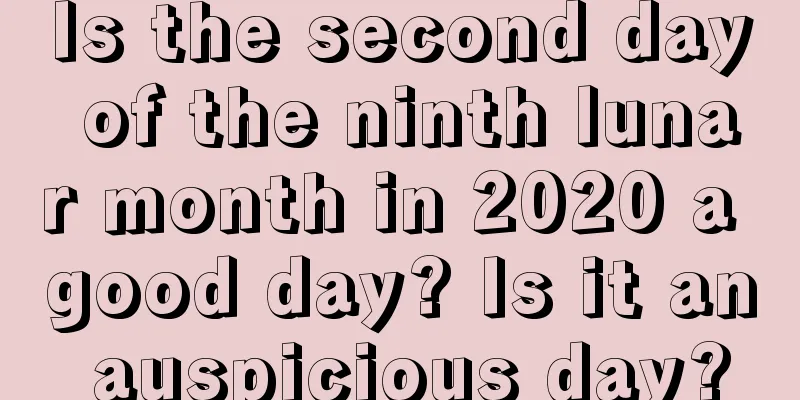What is the story behind the Ghost Festival? The Historical Origin of the Ghost Festival

The fifteenth day of the seventh lunar month is the traditional Chinese "Zhongyuan Festival", which is also known as the Mid-Autumn Festival, Ghost Festival, and Earth God Festival. The most important traditional custom of the Ghost Festival is to worship ancestors and the dead souls. So what are the stories behind the Ghost Festival? Let’s take a look at the historical origins of the Ghost Festival below!What is the story behind the Ghost Festival?Legend 1 <br /> The 14th day of the seventh lunar month is the Zhongyuan Festival, also known as the Ghost Festival or the Yulanpen Festival, which is a major festival for worshipping lonely ghosts. The Zhongyuan Festival originated from Taoism, and was later changed to the Yulan Festival commonly known as Buddhism. The Ullambana Festival means "hanging upside down" in Hindi. "Hanging upside down" refers to the fact that the mother of Mulian, one of the ten great disciples of Sakyamuni, suffered from the pain of hungry ghosts after her death and could not eat. Later, Mulian received help from Sakyamuni, and offered hundreds of flavors and five fruits to the gods and Buddhas of the ten directions and used the merits to save his mother. Therefore, in order to commemorate the lonely souls, a Pudu ceremony is held in the seventh month of the lunar calendar, also known as the Ghost Festival. Generally speaking, people in ancient times were reluctant to hold important events such as marriages in this month.Legend 2 <br /> As for the origin of Ghost Festival, it is said that Ksitigarbha Bodhisattva, also known as "King of Hell", had a mother who came to the underworld after her death. She was imprisoned in a cell and suffered all kinds of tortures in the eighteen levels of hell. Ksitigarbha Bodhisattva was a filial son. He could not bear to see his mother suffer, so on the fifteenth day of July, he secretly asked the little ghost guarding the cell to secretly open the cell door to let his mother out. Unexpectedly, once the cell door was opened, the little ghosts in the cell swarmed out and ran to the human world to harm the people, so there was a saying that "the fifteenth day of July, ghosts run around". Those ghosts who ran back to their hometowns asked their families for money so that they could use it to live and to open up their joints, hoping to be reborn as soon as possible. Later people designated this day as "Ghost Festival". On Ghost Festival, people burn paper money and place offerings to commemorate the souls of their deceased relatives. 10 taboos of the Ghost Festival1. Hang a wind chime at the head of the bed: Wind chimes are likely to attract good brothers, and sleeping is the time when they are most likely to be "invaded".2. Night travel: People with weak horoscopes should never travel at night, otherwise they will only invite trouble. 3. Burning ghost paper in non-specific occasions: Ghost paper is burned for good brothers, gold paper is burned for gods, and the result of burning ghost paper will only attract more good brothers. 4. Stealing the offerings: These are foods that belong to good brothers. Using them without their consent will only bring yourself difficult-to-solve misfortunes. 5. Whistle: If you whistle at night, be careful that your good friends like you. 6. Calling names: When strolling at night, never call out names. Try to use code names to avoid your good friends remembering your name. 7. Swimming: At this time, your good brothers will play the game of "ghost lifting foot" with you. If you are not careful, your life will be lifted away. 8. Random Gazing: Good brothers like to hide and scare people. If you are scared by random looking, that is the best time for them to invade you. 9. Place the banyan tree at the doorstep: because the banyan tree is a shade-gathering plant and is also the favorite of good brothers, unless you want good brothers to come to your house and visit. 10. Staying up late: It is late at night when people are at their weakest, and it is also late at night when ghosts are at their strongest. In comparison, who will win? The Historical Origin of the Ghost FestivalThe concept of Zhongyuan Festival originated from Taoism, and was later changed by Buddhism to the now commonly known Ghost Festival. This day in Buddhism is the Yulan Festival, and the origin of the Yulan Festival is "Mulian Saves His Mother". According to the editor, it is said that Mulian was a disciple of Buddha. His mother was greedy and vicious by nature. After her death, she was thrown into the realm of hungry ghosts in the cycle of reincarnation and would never be reborn. In order to rescue his mother, Mulian held the "Yulanpen Festival" on the 15th day of the seventh lunar month, allowing the wandering ghosts in hell to enjoy the food in the basin to atone for his mother's sins and enable her to be liberated. Later, on the fifteenth day of July every year, Buddhists would hold the "Yulanpen Festival", offering five kinds of fruits to the Buddha and monks in order to save their ancestors who were suffering in the underworld.The above statement is a more common one. According to the editor of Chengdu Funeral Home Zhongde Funeral, the Ghost Festival originated from the early "Mid-July" autumn harvest and ancestor worship. In ancient times, people often relied on the protection of gods for a good harvest. Ancestor worship takes place in spring, summer, autumn and winter, but autumn is the season of harvest, and "autumn tasting" plays a very important role in it. People hold ceremonies to offer sacrifices to the spirits of their ancestors, offering seasonal delicacies to their ancestors, and then taste the fruits of their labor and pray for a good harvest in the coming year. The significance of the Zhongyuan FestivalTaoism designates July 15 as the Zhongyuan Festival. One reason is that the two energies of this day are intertwined and the changes in the primordial energy are relatively frequent. Taoists would use this day to preach to people the truth that the way of heaven is selfless and that good and evil will be rewarded. In addition, this day is also the day when Taoist believers confess their mistakes to the Emperor of Forgiveness, the second-rank earth official of Zhongyuan, one of the high-ranking gods in Taoism. From the legends about the Zhongyuan Festival, we can also deeply realize that the Zhongyuan Festival sacrifice has a dual meaning. One is to promote filial piety and remember the ancestors. Although the Zhongyuan Festival has little to do with the people who have passed away, I hope you can still remember and miss the good ones among them. The second is to promote the righteous act of extending one’s own kindness to others and doing good deeds. This is all from the perspective of compassion and is very humane. Therefore, while celebrating the Zhongyuan Festival, we should get beyond the perspective of ghosts and encourage mutual love. |
<<: What can’t you do on the Ghost Festival? What are the precautions?
Recommend
What are the do's and don'ts on November 23rd of the lunar calendar in 2017?
Winter months are cold, but when everything goes ...
What is a good day to travel on the 14th day of the sixth lunar month in 2019?
The memory of June is accompanied by scorching hea...
What are the taboos on the 15th day of the 11th lunar month in 2019?
What are the taboos on the 15th day of the 11th l...
Is it a good idea to move graves on the summer solstice on May 19, 2019 in the lunar calendar? Does the summer solstice enter the dog days of summer?
Introduction: Relocating graves is a very importan...
Is it a good idea to open the business on March 5, 2020? How many days will it take for Jingzhe to arrive in 2020?
Introduction: The days of Jingzhe can be auspiciou...
What is the origin of the Cold Food Festival? What traditional foods are eaten during the Cold Food Festival?
Tour Guide: Cold Food Festival is an important and...
What is the lunar calendar date of October 25, 2020?
After the ninth lunar month, the tenth lunar mont...
Is the third day of the eleventh lunar month in 2021 a suitable date for engagement? What are the folk customs for engagement?
The eleventh month of the lunar calendar is the se...
Is it good to set up the bed the day before Cold Dew on August 21, 2020? What season does Cold Dew belong to?
Introduction: It is necessary to choose an auspici...
How are the tiger babies born in April of the lunar calendar in 2022? What are their fate and fortune?
How are tiger babies born in April of the lunar ca...
Is it suitable to decorate the house between April 2nd and April 24th of the lunar calendar in 2020?
Introduction: Generally, you need to choose an aus...
Is June 23rd of the lunar calendar in 2022 suitable for moving? Is it a good day?
The sixth month of the lunar calendar is also know...
2018 December 20th auspicious time, good and bad time query
The arrival of the twelfth month of the lunar cal...
Is the 28th day of the twelfth lunar month in 2019 a good day to move into new house? What are the Feng Shui considerations for moving?
Introduction: In our country's traditional cul...
Is it possible to get married or engaged on the fifth day of the eighth lunar month in 2018?
Autumn is a season of harvest, with the fragrance...









